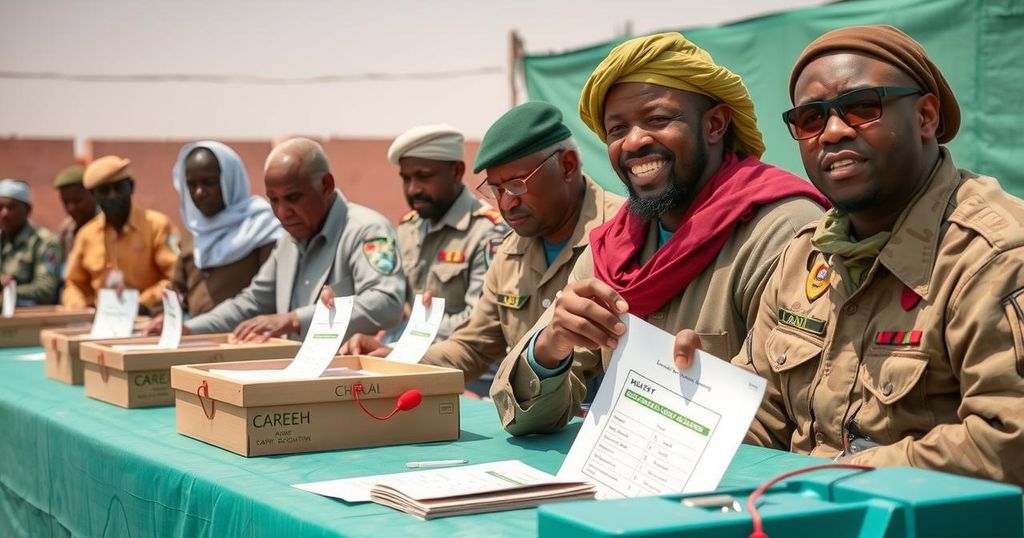Chad’s Military and Nomadic Communities Participate in Controversial Elections

Chad’s military and nomads voted in general elections on Saturday amid opposition boycotts. President Mahamat Deby touts this as a move towards democracy, while about 45% of eligible voters participated. Challenges remain, including security concerns and calls for improvements in living conditions from nomadic tribes affected by climate change.
On Saturday, Chad’s military personnel and nomadic communities participated in the general elections ahead of the broader voting scheduled for Sunday. These elections are being advocated by President Mahamat Idriss Deby Itno as a significant move towards democracy, although they have faced a boycott from opposition entities. Approximately 45 percent of the 200,000 nomads and 45,000 soldiers estimated to be eligible had voted by midday, with reports of voting taking place smoothly in military barracks and nomadic camps.
Sheikh Djibrine Hassabakarim, representing the nomadic populace, emphasized that they are voting with hopes for improvements in their living conditions, particularly due to challenges posed by climate change. Voting is occurring amidst ongoing security concerns stemming from Boko Haram attacks and international tensions linked to Sudan. President Deby has been in power since 2021, succeeding his father, and is leading efforts to establish a governmental structure after delaying legislative elections since 2011.
Chad has faced significant political and social challenges in recent years. President Mahamat Idriss Deby Itno assumed leadership following the death of his father, who ruled for three decades. The current elections aim to select members for the national parliament, regional assemblies, and local councils, marking a potential shift towards democratic governance, despite opposition claims of the process lacking legitimacy. Furthermore, political instability has contributed to the postponement of previous elections, raising concerns about governance and national security.
The ongoing elections in Chad reflect a crucial moment for the nation’s governance structure and democratic aspirations. Despite the participation of military and nomadic voters, opposition parties criticize the elections as lacking genuine democratic processes. The challenges faced by the country, including security threats and socio-economic issues, underline the complexities of this electoral period.
Original Source: www.barrons.com








